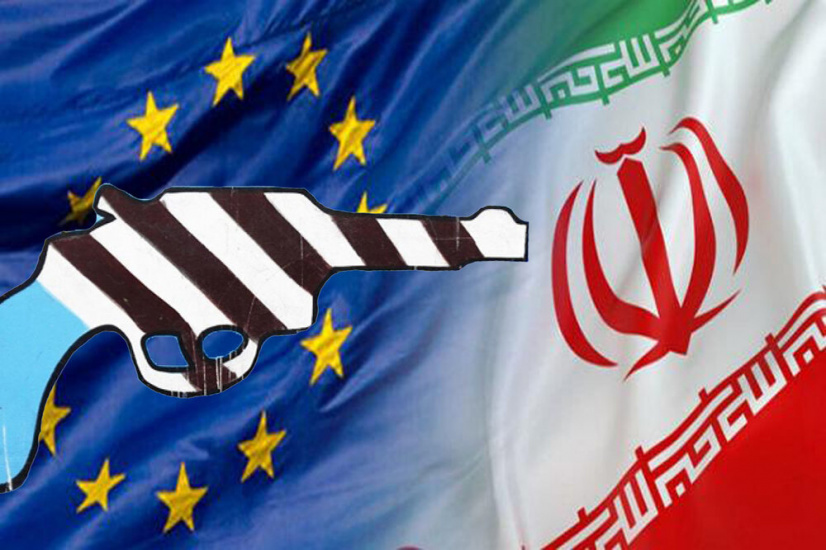Snapback mechanism: U.S.-French threadbare scenario against Iran

The dispute resolution mechanism stated in paragraphs 36 and 37 of the JCPOA (Joint Comprehensive Plan of Action) is referred to as the “snapback mechanism”.
Under the mechanism, if one of the JCPOA parties concludes that the other party does not adhere to the obligations of the deal, it could complain to the Joint Commission established within the JCPOA framework to monitor the implementation of the deal.
If the complaint is not resolved within 35 days, as the complainant wishes, the party can consider the unresolved issue as a reason to stop complying with the deal’s commitments and inform the UN Security Council that the issue will imply significant non-compliance. Thereafter, the Security Council must issue a resolution regarding suspending sanctions or reinstating them within 30 days.
If during this time, the Security Council fails to issue a resolution, all UNSC sanctions imposed before the JCPOA will be resumed automatically. The key point of the mechanism is that the resumption of the sanctions cannot be vetoed.
Although the U.S. has officially withdrawn from the JCPOA on May 7, 2018, there have been some whispers in recent days regarding citing the snapback mechanism in the deal. This is while, based on the deal, the initial complaint should be submitted to the Joint Commission of the JCPOA.
In August, Brian Hook, U.S. Special Representative for Iran affirmed the U.S. failure to spark the snapback mechanism.
Hook said in response to a question, “We’re no longer in the deal and so the parties that are still in the deal will have to make their decisions with respect to using or not using the dispute resolution mechanism. There’s no question that Iran is in breach of the Iran nuclear deal”.
Meanwhile, the European Union's incoming foreign policy chief, Josep Borrell, who recently replaced Federica Mogerini, officially announced that Iran had not violated any of the deal’s provisions.
Evidence suggests that the U.S. is likely to ask for triggering the snapback mechanism, in line with the deal brokered between U.S. Senator Ted Cruz and, U.S. Secretary State Mike Pompeo.
According to the Associated Press, the State Department agreed to release a portion of an internal legal opinion that says the U.S. has the right to demand that all UN sanctions on Iran be reinstated, despite President Donald Trump pulling the U.S. out of the nuclear deal. In exchange, Sen. Ted Cruz, R-Texas, lifted his hold on the nomination for Stephen Biegun to serve as the State Department’s No. 2 official.
Following official nomination of the State Department’s No. 2 official as the U.S. Ambassador to Syria, David Hale, who testified behind closed doors and was involved in Trump impeachment due to the Ukraine scandal, will be No.3 official at the State Department.
In such a situation, if Pompeo resigns from his position to take part in the Senate election, Hale will serve as secretary of state.
The Associated Press reported that the Iran opinion will be used by Cruz and other Iran deal opponents to argue that the U.S. should invoke a “snapback” mechanism for UN sanctions that is allowed under the Security Council resolution that enshrined the 2015 agreement known as JCPOA.
Although the European officials have also learned about the game by the U.S. officials, the European troika has shown that it is unable to confront Washington’s illegal activities.
France is the most sophisticated actor in the scene, as French officials and foreign ministers have threatened to trigger a snapback mechanism on the eve of Vienna talks.
In other words, it is the 16-year strategy adopted by the European countries toward the nuclear negotiations to gain more concession by threatening to trigger a snapback mechanism and creating a negative atmosphere. It is the past “carrot and stick” policy.
* Author: Mohammad Ghaderi , Tehran Times editor in chief
Source: Tehran Times

